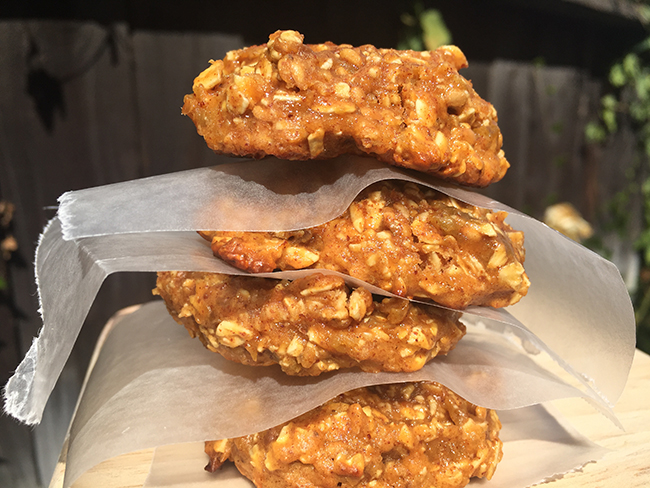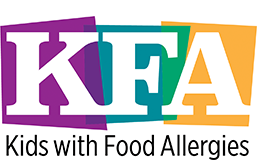 Avg. rating 5 from 2 votes.
Avg. rating 5 from 2 votes.
# of Servings: 18-24 cookies
Recipe Created By: Jeanne Larson
1 cup pureed sweet potato (see directions)
1/4 cup sunflower seed butter
1/2 cup honey
1 egg
1 tsp vanilla extract
1.5 cups rolled oats
3 Tbsp flax seed
1 tsp cinnamon
1/4 tsp nutmeg
1 tsp baking powder
1/8 tsp salt
Prepare Sweet Potato Puree:
Wash and prick a few holes on sweet potato. Place directly on oven rack, but place a sheet of foil on bottom of oven. Bake at 425°F for 45 minutes- 1 hour, depending how thick it is. Poke a hole in the center to check for doneness. You should be able to poke easily through when completely cooked.
Wait til cool, peel and either hand mash, or put cooked sweet potato in Ninja blender and blend well till smooth.
Make Cookies:
Preheat oven to 350°F.
In a mixing bowl or Ninja blender, blend wet ingredients first.
Then, add dry ingredients and blend well until thoroughly mixed. On a greased baking sheet, spoon cookie sized portion and bake for 13-15 minutes until top of cookie is firm and bottom is light brown.
Delicious, healthy allergy-free cookies! Packed with flavor and nutrition!
You could use almond butter instead of sunflower seed butter.
Butter and Margarine: Butter is a dairy product made from cow’s milk. Margarine typically contains milk or soy, but there are milk-free and soy-free versions available.
Corn Substitutions: Corn is a common ingredient in products. Starch, modified food starch, dextrin and maltodextrin can be from corn. Consult with your physician to find out which corn derivatives you need to avoid. Many corn-free options are available in the US. Find out more about
corn substitutions.
Egg Substitutions: There are many egg-free products and foods available to make your recipes free of eggs. Find out more about
egg substitutions.
Gluten: Gluten is a protein found in specific grains (wheat, spelt, kamut, barley, rye). Other grains are naturally gluten-free but may have cross-contact with gluten-containing grains. Look for certified gluten-free products if you need to avoid gluten. Find out more about
wheat and gluten substitutions.
Peanut Substitutions: There are many peanut-free products available in the US. Find out more about
peanut substitutions.
 Avg. rating 5 from 2 votes.
Avg. rating 5 from 2 votes.




















